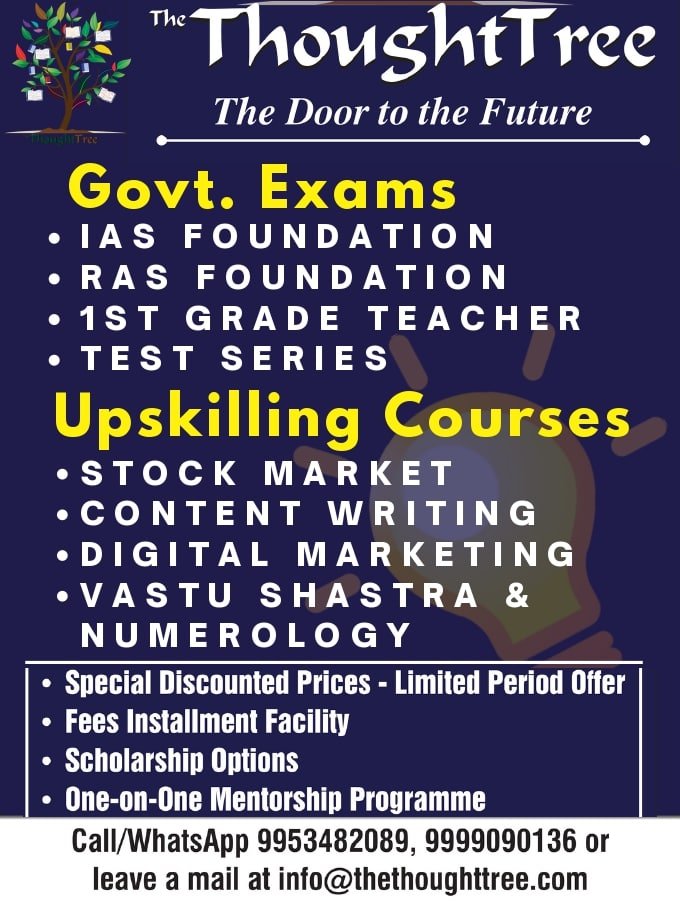Every year, lakhs of candidates start UPSC preparation, and only a few hundred get selected. Once cleared, you will enter the world of bureaucracy and work for the country. However, clearing IAS exams is undoubtedly not a cakewalk. Of course, good things come with a price. For an IAS aspirant, their routine plays a vital role in their preparation. For aspirants who are unsure how to start preparing for the UPSC, this article will provide you with a proper 1 Year Study Plan for IAS.
Importance of a Study Plan for IAS Exam Preparation
Studying for any exam, it is absolutely important to plan, manage time, and study accordingly to get the anticipated outcome. Plan your schedule and determine when to study, how much time should be given to a particular topic, and then study based on your grasping abilities.
Every Civil Services Examination is carried out in three stages: Prelims, Mains, and Interview. Making a study plan for UPSC is the most crucial part of the exam preparation process. It would be best if you built a strategy in the context of the preparation required for this arduous exam. But see, it is like creating a castle. Firstly you will have to map everything out, create, adhere to, and make some adjustments to your daily Timetable and Study Plan.
1 Year Study Plan for IAS
Before explaining further about the study plan for IAS, you must be wondering how to prepare for the IAS exam? I will highly recommend joining The Thought Tree (T3).
The Thought Tree(T3) is one of the promising and leading IAS coaching in Jaipur, Rajasthan. We have academic experts and professionals who combine academic theory with practical experience and industry knowledge, providing quality learning experiences and sharing their knowledge with the students.
An aspirant should begin by learning for the prelims and mains exams. UPSC aspirants should read a newspaper regularly for current affairs. Students should devote at least one hour to reading the newspaper. You should know how to read newspaper for UPSC.
So now, let’s discuss how you can clear IAS in the first attempt by following a1 Year Study Plan for IAS.
May & June
First, go through the entire syllabus of UPSC. Make sure that you always have a copy of the syllabus while studying to learn things that are not in your syllabus.
In one and a half months, students should focus on reading NCERTs from grades 6 to 12.
After reading the NCERTs, aspirants should look at last year’s questions and check which topics come outside the NCERT. This will benefit you in interpreting the format of the UPSC prelims paper.
Read More: NCERT Books for UPSC
July to December
The next 6 months will comprise a three-fold approach: revision through NCERT test series, advanced concepts study through a UPSC Foundation course, and finishing an optional subject for the UPSC Main examination.
Every aspirant must read the standard books. Students should also go in for some prelims test series to keep an account of their improvement and confirm that their studies are per the expectations of the CSE exam. Also, in these months, one should practice devising Mains answers, especially for optional courses.
January & February
Thus far, each aspirant taking the IAS exam must have completed their optional courses and have finished 80% of their GS courses. Consecutively, an aspirant should use the coming next two months for discretionary revision and finishing the GS Course.
March & April
The UPSC CSE preliminary assessment is conducted in these two months, so they play a crucial role in preparation for this competitive exam. The UPSC application forms come in February.
Thus candidates generally get about two to three months to commence preparation. It consists of a revision of standard textbooks at a minimum of 2 times, yearly retrospection of current happenings, and kicking off the practice of mock tests.
By the end of April, every aspirant must have practiced around 8000+ MCQs. Nonetheless, practicing MCQs is not adequate. During April, an aspirant must also manage to revise all the MCQs swiftly.
May
In the preceding month, the preliminary exam is substantial as it would decide the destined outcome. Each aspirant should finish at least two quick revisions of the course and approximately complete five mock tests.
How many hours to Study Daily?
Give utmost importance to your subjects, manage time, plan things, and finish the whole syllabus by doing numerous revisions quickly. So, you should have a proper 1 year IAS Study Plan. The time estimation to plan and prepare for IAS should be approximately 10 – 12 hours a day.
At The Thought Tree, our approach to teaching and learning varies from student to student. A counseling process takes place, and after evaluating your capabilities, a mentor is assigned to you. Our mentors will tutor and clear all your doubts to prepare for this challenging exam. Our objective is to provide mentorship to every student. With weekly tests and daily revisions of all topics, our mentors will guide you throughout the preparation. Also, you can learn collaboratively with our experts and contemporaries via community forums. We have got your back, so don’t worry. You are our responsibility, and we will be with you to guide you until the selection takes place. All these things makes us the best IAS institute in Jaipur.
Standard Books to refer to (Besides NCERTs)
Indian History & Culture
- India’s Struggle for Independence by Bipin Chandra
- A New Look at Modern Indian History by B L Grover & Alka Mehta
World History
- Mastering Modern World History by Norman Lowe
India & World Geography
- Certificate Physical & Human Geography by Goh Cheng Leong
- India: A Comprehensive Geography by D R Khullar
- World Geography by Majid Hussain
Indian Society
- Social Problems in India by Ram Ahuja
Indian Polity
- Indian Polity by M Laxmikanth
- Introduction to the Constitution of India by D DBasu
- Our Constitution by Subash Kashyap
International Relations
- India’s Foreign Policy by V P Dutt
- Rethinking India’s Foreign Policy by Rajiv Sikri
Economic Development
- Indian Economy Since Independence by Uma Kapila
- Indian Economy Key Concepts by K. Shankarganesh
Ethics, Integrity & Aptitude
- Ethics, Integrity & Aptitude by G Subba Rao
- The Lexicon for Ethics, Integrity & Aptitude by Niraj Kumar
Read More: History Books for UPSC Preparation
Significance of a Study Plan
Planning to Achieve Goals
Planning things will make things simple and easy to achieve. A daily timetable and revision and mock tests will also be helpful as you will feel the pressure before appearing for the actual examination.
Elevates Your Confidence
When you gradually move towards your goal, it builds up your confidence. And confidence is necessary for clearing exams like IAS and UPSC.
Zero Stress
When everything is organized and you have planned a long-term strategy, you are sure of the outcome. It will save you from getting anxious and being tense. You will be relaxed and calm. Eventually, your brain will be able to work coherently.
Final Thoughts
So, to wrap it up, I hope that this one-year study plan for IAS will be helpful and will help you to pursue your dream of becoming an IAS officer. Believing in yourself and remembering a goal without a plan is just a wish.





